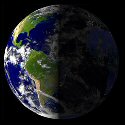Astronomy
Sun |
Moon |
|
|
|
| Sunrise: 7:30am Sunset: 5:17pm Daylight: 09:47 |
Moonrise: 2:40pm (30-Jan-2026) Moonset: 6:09am (30-Jan-2026) Waxing Gibbous 90% Illuminated |
| First Quarter Moon | Full Moon | Last Quarter Moon | New Moon |
 |
 |
 |
 |
|
Sun, 25-Jan-2026 10:48pm CST 26 January 2026 04:48 UTC |
Sun, 01-Feb-2026 4:10pm CST 1 February 2026 22:10 UTC |
Mon, 09-Feb-2026 6:44am CST 9 February 2026 12:44 UTC |
Tue, 17-Feb-2026 6:02am CST 17 February 2026 12:02 UTC |
| Vernal Equinox Start of Spring |
Summer Solstice Start of Summer |
Autumn Equinox Start of Fall |
Winter Solstice Start of Winter |
 |
 |
 |
 |
|
Fri, 20-Mar-2026 9:47am CDT 20 March 2026 14:47 UTC |
Sun, 21-Jun-2026 3:25am CDT 21 June 2026 08:25 UTC |
Tue, 22-Sep-2026 7:06pm CDT 23 September 2026 00:06 UTC |
Mon, 21-Dec-2026 2:51pm CST 21 December 2026 20:51 UTC |


